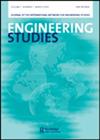What Late-Career and Retired Women Engineers Tell Us: Gender Challenges in Historical Context
IF 1.3
3区 工程技术
Q2 EDUCATION, SCIENTIFIC DISCIPLINES
引用次数: 5
Abstract
Women engineers who graduated from college in the 1970s, a time in U.S. history when women’s entry into engineering seemed most promising but failed to gain traction, offer important perspectives on the challenges facing women engineers in the past and today. To that end, we surveyed 251 women engineers from that generation to understand their perspectives and experiences. We found that the challenges faced by so many of the women engineers reflect gender issues that are deeply embedded in our interpersonal interactions and social structures – so much so that progress for women in engineering has been slow despite the anticipation that as more women went into the field, things would have gotten better. Although, as many participants noted, these challenges are rooted in gender inequity at social and institutional levels, participants often recommended individual-level solutions, encouraging young women to ‘just do it’ and persist in spite of the challenges. Our historical framing and gender analysis of participants’ responses help to explain their beliefs about why change has been slow and why, despite the continued challenges, they have persisted and encourage young women to do the same.晚期职业和退休女工程师告诉我们:历史背景下的性别挑战
20世纪70年代从大学毕业的女工程师,在美国历史上,女性进入工程领域似乎最有希望,但未能获得吸引力,她们对女性工程师在过去和今天面临的挑战提供了重要的视角。为此,我们调查了这一代的251名女工程师,以了解她们的观点和经历。我们发现,如此多的女工程师所面临的挑战反映了深深植根于我们人际交往和社会结构中的性别问题,以至于女性在工程领域的进展缓慢,尽管人们预计随着更多女性进入该领域,情况会变得更好。尽管正如许多与会者指出的那样,这些挑战植根于社会和机构层面的性别不平等,但与会者经常建议个人层面的解决方案,鼓励年轻女性“顺其自然”,并在面临挑战的情况下坚持下去。我们对参与者反应的历史框架和性别分析有助于解释他们的信念,即为什么变化缓慢,以及为什么尽管面临持续的挑战,但它们仍然存在,并鼓励年轻女性也这样做。
本文章由计算机程序翻译,如有差异,请以英文原文为准。
求助全文
约1分钟内获得全文
求助全文
来源期刊

Engineering Studies
ENGINEERING, MULTIDISCIPLINARY-HISTORY & PHILOSOPHY OF SCIENCE
CiteScore
3.60
自引率
17.60%
发文量
12
审稿时长
>12 weeks
期刊介绍:
Engineering Studies is an interdisciplinary, international journal devoted to the scholarly study of engineers and engineering. Its mission is threefold:
1. to advance critical analysis in historical, social, cultural, political, philosophical, rhetorical, and organizational studies of engineers and engineering;
2. to help build and serve diverse communities of researchers interested in engineering studies;
3. to link scholarly work in engineering studies with broader discussions and debates about engineering education, research, practice, policy, and representation.
The editors of Engineering Studies are interested in papers that consider the following questions:
• How does this paper enhance critical understanding of engineers or engineering?
• What are the relationships among the technical and nontechnical dimensions of engineering practices, and how do these relationships change over time and from place to place?
 求助内容:
求助内容: 应助结果提醒方式:
应助结果提醒方式:


